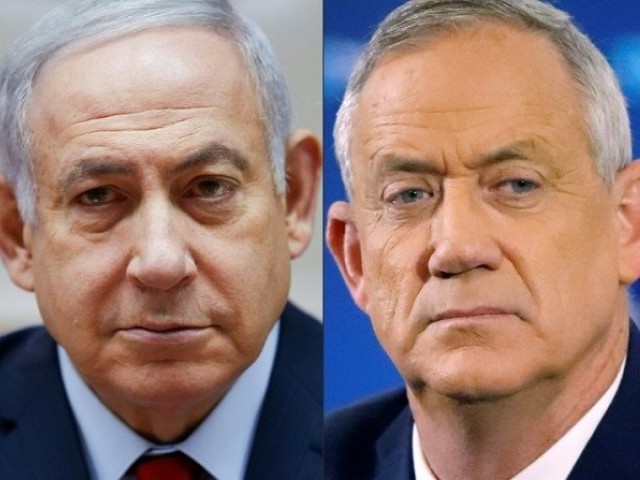
The centrist former army general, whose party was narrowly ahead of Prime Minister Benjamin Netanyahu's right-wing Likud after those elections, said he had tried everything during his 28-day negotiation period to secure a majority in Israel's 120-seat parliament.
"I raised every stone to try and form a national unity government," he said in a speech after informing President Reuven Rivlin he would be handing back the mandate.
US backs Israel on illegal settlements, angers Palestinians
"I ran into a wall of losers who did everything to prevent Israeli citizens from benefitting from a government under my leadership."
Incumbent Netanyahu, who has been in power since 2009, had been the first to be handed a 28-day negotiation period by Rivlin, but was unsuccessful in the task of forming a coalition, prompting the president to give Gantz the same opportunity.
Rivlin will now hand the mandate to the Israeli parliament, which has three weeks to try and find a candidate capable of getting the backing of the majority of the country's 120 lawmakers.
If that period passes without a breakthrough, new elections will be called for early 2020 -- the third national polls within 12 months.
Polls held last April also led to stalemate in a proportional system reliant on coalition building.
Netanyahu, who is fighting corruption allegations he denies, would remain caretaker leader until the new elections.
Netanyahu responded immediately after Gantz's announcement, saying he remained open to talks in the coming weeks.
"Israel needs a government of national unity and that is why in the name of the security of Israel and in the name of the will of the people, we must form this government together," he said, addressing Gantz.
Gantz's negotiation period was due to expire at midnight Wednesday but his hopes of forming a government were in effect dashed at lunchtime when potential kingmaker Avigdor Lieberman announced he would not back him.
The former defence minister's Yisrael Beitenu party has eight seats and held the balance of power between Gantz's and Netanyahu's blocs.
Lieberman had refused to join either coalition, accusing Gantz of being reliant upon the support of Israel's Arab parties and Netanyahu of being slave to the whims of ultra-Orthodox Jewish parties.
Instead, the former defence minister favoured forming a unity government between his party, Likud and Blue and White.
Both Gantz and Netanyahu said they supported the proposal -- which would entail rotating the premiership -- but disagreed who should be prime minister first.
Talks had continued late into Tuesday but collapsed into mutual accusations of blame.
Lieberman said both Gantz and Netanyahu had put their personal interests ahead of the country's.
"If we are dragged to new elections it will be because of a lack of leadership," he said.
A 60-year-old former paratrooper, Gantz had no previous political experience when he declared himself Netanyahu's electoral rival in December.
But he has posed the most serious challenge to Netanyahu since he became premier in 2009.
New elections would be deeply unpopular with the public, but columnist Ben Caspit, writing in the Maariv daily Wednesday morning, said they were now all but inevitable.
"The path towards establishing a government in Israel has never been at a greater impasse," he wrote.
Netanyahu says cannot form Israel govt, allowing opponent to try
"We are going to need a miracle to avert a third election."
Netanyahu also faces a threat to his political career from the corruption allegations.
Attorney General Avichai Mandelblit is due to decide by December whether to charge him over a series of accusations he denies.
An indictment might permanently damage Netanyahu's support, whereas a reprieve could give him a new lease of life.

1732569774-0/Baymax-(2)1732569774-0-165x106.webp)















COMMENTS
Comments are moderated and generally will be posted if they are on-topic and not abusive.
For more information, please see our Comments FAQ